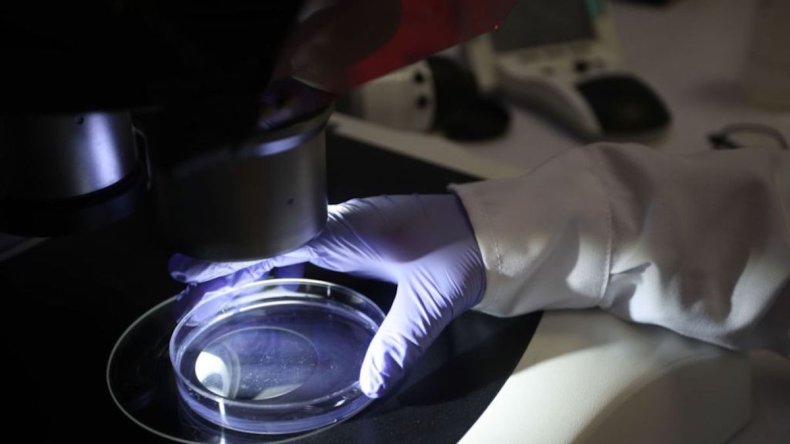Scientists have discovered two bacteria with great antibiotic potential in a river in Chile.
The breakthrough comes as the search for new bacteria to develop antibiotics is one of humankind’s greatest health challenges as bacterial infections are increasingly resistant to conventional medical treatments.
The two bacteria were found by researchers at the Institute of Biomedical Sciences of the Faculty of Medicine of the University of Chile (ICBM), according to a statement Zenger News obtained Wednesday from the University of Chile.

Raul Sifuentes/Getty Images
This reportedly occurred while the researchers were testing a cholera-causing bacteria’s ability to survive in water in the Mapocho River, which flows from the Andes mountains and cuts through the capital city of Santiago in Chile.
The bacteria are categorized as Pseudomona koreinsis I1 and Desemzia inserta I2 respectively and act as inhibitors of pathogens, according to the statement.
This means that they contain promising antibiotic potential and could be used to combat antibiotic resistance.
Further investigation into the discovery, in a project financed by The National Fund for Scientific and Technological Development (FONDECYT) in Chile, will allow the team to study the antimicrobial molecules produced by the microorganisms.
This could lead to new formulas that could help address the global antibiotic resistance crisis. An estimated 10 million people will die annually starting in the year 2050 due to multi-resistant strains, according to the World Health Organization (WHO).
The WHO added: “Antimicrobial resistance occurs when bacteria, viruses, fungi and parasites change over time and no longer respond to medicines making infections harder to treat and increasing the risk of disease spread, severe illness and death. As a result, the medicines become ineffective and infections persist in the body, increasing the risk of spread to others.”
Victor Garcia, an academic from ICBM’s Microbiology and Mycology program who led the team, stated that searches for the bacteria have taken place in ecological niches where unique bacteria is expected to be found.
He added: “Since these are little-explored environments, one hopes to find new molecules because one of the big problems today is that, when inhibitory bacteria are found, the antimicrobials they produce have already been described before.
“(It is) very likely we will solve the problem of finding already known molecules.
“Our project has to do with the discovery and characterization of these molecules, in the context of the critical problem for humanity that is the resistance of antibiotics to bacteria.”
This story was provided to Newsweek by Zenger News.
Stay connected with us on social media platform for instant update click here to join our Twitter, & Facebook
We are now on Telegram. Click here to join our channel (@TechiUpdate) and stay updated with the latest Technology headlines.
For all the latest For Top Stories News Click Here
